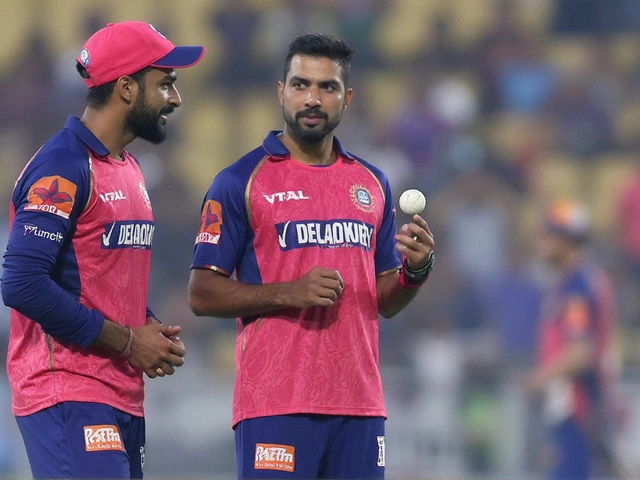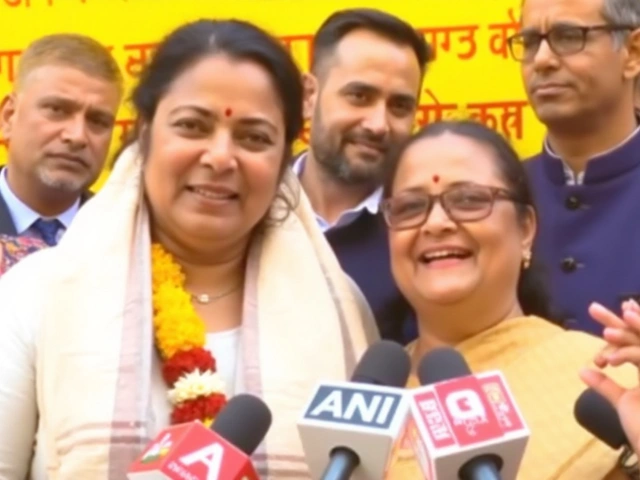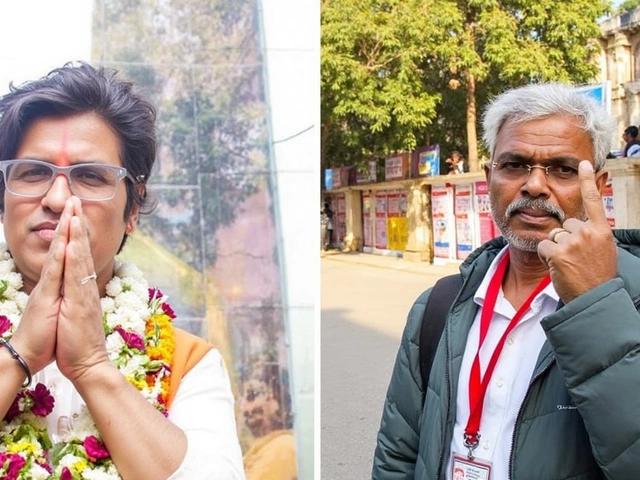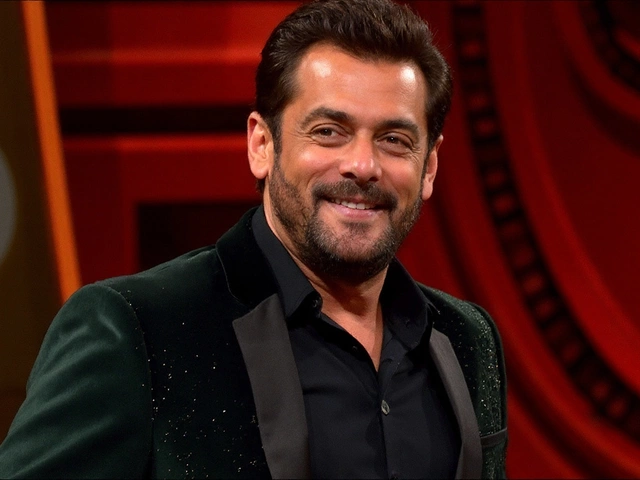A 21-year-old walked into the country’s most watched reality house, looked Salman Khan in the eye, and said she wants to be the first young winner. That was Ashnoor Kaur on premiere night—calm, clear, and ready to be measured against a format that spares no one.
As the first contestant to step into the house this season, she didn’t just make an entrance; she set the tone. At 21, she’s one of the youngest faces in the show’s long run, and she knows that invites doubt. She addressed it before anyone else could: age won’t be her ceiling. Salman appreciated the intent; the audience took note of the poise.
The season arrives with the theme “Gharwalon Ki Sarkar,” a tagline that hints at power shifting through the house in new ways. The exact shape of that will play out in tasks and rules, but the message is clear—collective pressure will be intense. Walking in first gives Ashnoor a head start on reading the room, spotting early alliances, and avoiding the usual early-week missteps.
Who is Ashnoor Kaur?
If you’ve watched TV in the last decade and a half, you’ve likely seen her work grow up on screen. She entered sets at five with Jhansi Ki Rani in 2009, became a familiar face as young Naira in Yeh Rishta Kya Kehlata Hai, and took a leap into lead territory as Mini in Patiala Babes. That run alone would fill a resume. But she didn’t stop at credits.
While shooting through her teen years, she stacked up grades most full-time students would be happy with—93% in Class 10 and 94% in Class 12 (CBSE). She then finished a Mass Media degree, clearing 37 subjects and tallying 70 projects. That mix of work ethic and discipline is exactly what this game demands when the cameras don’t blink and the house tests patience more than talent.
Financial independence came early too. At 19, she bought her home in Mumbai. For a young actor in an industry that often sells the dream before the fine print, that’s a hard signal: she plans, she executes, and she leaves less to chance.
And yes, she isn’t walking in blind. She’s carrying advice from Hina Khan, the Bigg Boss 11 runner-up who carved her own reality-show playbook—be visible but measured, assertive but controlled. If even a fraction of that framework sticks, Ashnoor will have guardrails when tempers flare.
What her entry means for Bigg Boss 19
Reality TV has a habit of boxing younger contestants into the “kid” label. It’s flattering on day one and frustrating by week two. Ashnoor’s answer is to set a different narrative early: she’s not here to be indulged; she’s here to compete. That declaration on stage wasn’t bluster—it was strategy. If housemates underestimate her, that’s leverage. If they don’t, she’s already earned parity.
Being the first contestant in the house is bigger than bragging rights. It lets her shape first impressions unchallenged, grab neutral ground before groups form, and stretch a few conversation threads across rooms. In a game where one wrong tone in week one can brand you for a month, that’s valuable runway.
The theme “Gharwalon Ki Sarkar” suggests decision-making may feel more collective, and scrutiny may feel heavier. That setup rewards clarity—where you stand, who you back, how you argue. It also punishes fence-sitting. Ashnoor’s TV upbringing—long schedules, tight deadlines, notes coming in at the last minute—trains you to decide quickly and live with it. That muscle matters here.
Her exchange with Salman Khan will linger beyond premiere night. He likes contestants who don’t crumble under direct questioning. She didn’t. That usually translates into cleaner, more direct Weekend episodes—less hedging, more accountability. In a house where episodes can change a contestant’s story in 10 minutes, composure across the weekend is an edge.
The early social chatter leans positive. Fan pages and comment threads are calling out her balanced tone, the absence of nervous fidgeting, and her straight answer about the winner’s trophy. That doesn’t guarantee votes later, but it buys patience from viewers in the messy early weeks where fans are choosing favorites.
Does age decide this game? Not really. Past seasons have shown that intensity, stamina in tasks, and public connection beat birthdays every time. Younger contestants often tire faster in the politics, not the stunts. If Ashnoor uses study discipline—listen more, pick battles, conserve energy—she neutralizes that trap.
The career stakes are real. For an actor who started as a child artist, a hit season can reset how casting directors picture you. It can move you from “reliable junior” to “bankable lead” in prime-time shows or streaming projects. It can open endorsements that want clean, aspirational faces with recall. It can also expose cracks if you overplay aggression or hide behind diplomacy. That’s the tightrope.
Strategically, watch how she handles three pressure points: nominations, food fights, and task hierarchy. Nominations reveal who you actually trust. Food fights—those daily micro-conflicts—tell the audience whether you’re fair or finicky. Task hierarchy—who leads, who follows—builds reputations that stick for weeks.
Her template, if she keeps it simple, is straightforward: be visible in tasks, be firm in rules, and be measured in arguments. The house rewards people who can say “no” without yelling, “sorry” without surrendering, and “enough” at the right time.
There’s also the Hina Khan factor. Advice is easy in the lounge; it’s hard at 3 a.m. after a blow-up. But Hina’s run taught one useful lesson: consistency wins respect. If Ashnoor picks a tone—calm but not passive, sharp but not cruel—and sticks to it, she’ll collect allies who may not be friends but won’t be enemies either.
And the vibe inside? Walking in first, she’ll likely be pulled into early planning—kitchen rotations, cleaning charts, alliance whispers. She shouldn’t take every job; she should pick a visible lane and own it. The house notices doers. The audience notices people who don’t weaponize chores for attention.
What about the fan lens outside? Her long TV run gives her a base that already speaks her language. They’ve watched her as a child, a teen, and a lead. If she bridges that history with a grown-up, steady presence here, she’ll look less like a “former child actor” and more like a performer closing one chapter and starting another.
- Early alliances: expect organic bonds with housemates who value routine over chaos.
- Task leadership: her shot at captain-like roles will hinge on calm communication, not volume.
- Conflict choices: picking two or three non-negotiables will prevent energy drains.
- Weekend posture: quick, clear answers to Salman will keep her narrative clean.
- Use of advice: Hina’s tips will matter most when groupthink kicks in—especially around nominations.
For the show, her entry is a clean narrative to follow: one of the youngest faces, a first-night statement, and a résumé built on both work and study. For the audience, she’s easy to root for without being framed as a newbie. And for the house, she’s a wildcard with a plan—quiet now, but not quiet for long.
As week one unfolds, the question isn’t whether Ashnoor can handle the format. It’s whether she can turn that opening clarity into week-by-week momentum—through tasks, through group power shifts, through the long, loud nights. If she does, the conversation about a young winner won’t sound theoretical anymore. It’ll sound current.
One thing is already certain: Bigg Boss 19 has its first headline act, and she walked in before the doors even closed.








